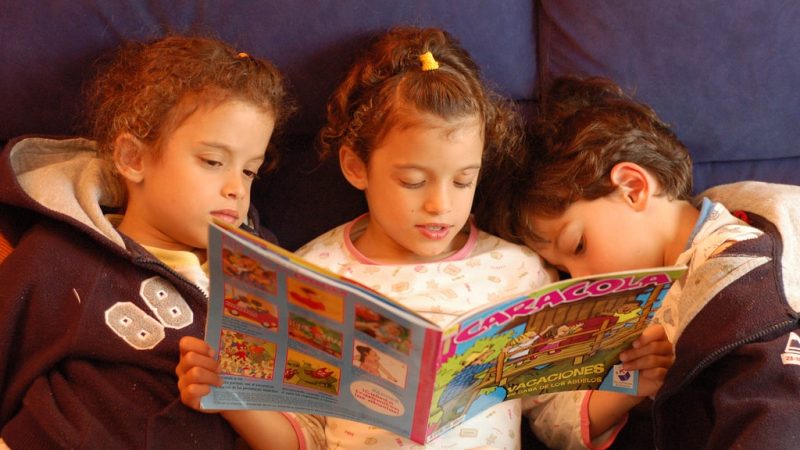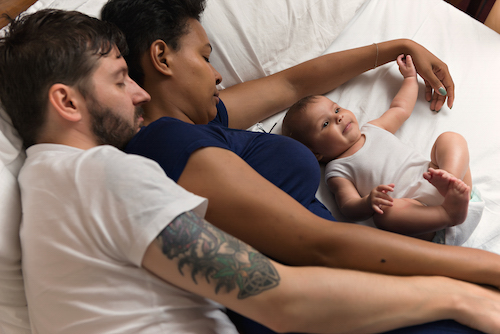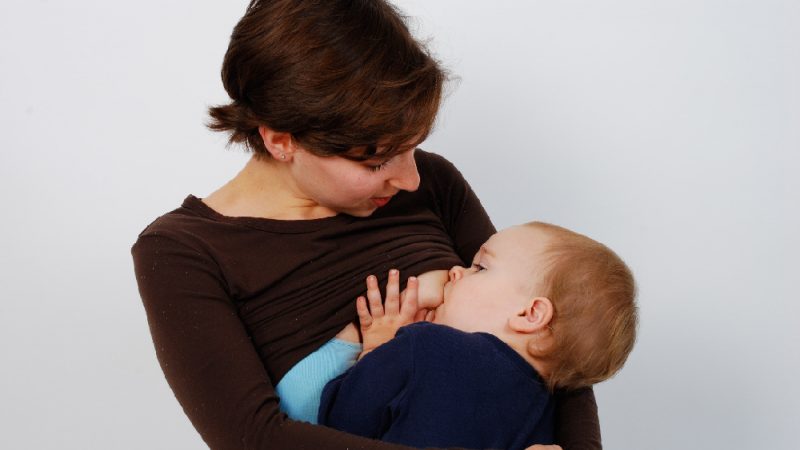
Parenting Styles – what does research tell us? A Q&A with Prof Judith Smetana
Image: Benjamin Manley on Unsplash
Judi: Hi – I’m happy to ‘meet’ you all! I am a professor of psychology at the University of Rochester, in Rochester, New York. My research focuses on adolescent-parent relationships and on parenting. I’m eager to answer your questions!
PSG Z: Hi, thanks for being here! 🙂
Q: Hi Judi! I think that most of us have read about 4 main parenting styles, and pretty much everything that I have read has heavily encouraged parents towards an authoritative style. So what questions do researchers have about parenting styles? What is driving current research?
Judi: To be honest, much current research has moved away from parenting styles, because they are very global. My research and others’ research suggests that parents do not always use a consistent style – that how they parent varies depending on the type of situations they encounter.
Therefore, much current research focuses on the components of parenting styles – for instance, parental support and warmth, parental use of behavioural control or psychological control, autonomy support, etc. looking at dimensions of parents allows a much more detailed and specific look at what parents are doing.
There is also some very interesting new research trying to define the different domains of parenting – e.g., the different types of goals that parents have in their interactions with children – for instance, to provide protection or security, versus exerting control, versus guided learning.
PSG Z: What are you working on at the moment?
Judi: Good question. Several things. I am doing some cross-cultural research, in both Hong Kong and in the Middle East. In Hong Kong, we’re looking at early and middle adolescents’ thinking about parental guilt induction (guilting) around moral and academic issues.
We’re interested in how it makes teens feel, whether they think it’s effective, what they think parents are trying to accomplish when they use guilt, etc.
PSG W: Are you using other cultures as a comparative?
Judi: There is so much research on US kids (or more generally, on Western kids). In my cross-cultural research, we try to study kids in the culture, without making direct comparisons, and we try to make sure the research is informed by cultural values. My collaborator in Hong Kong is an ex-student of mine (from 25 years ago !! :)), but she is Chinese and grew up in Hong Kong.
PSG U: This sounds fascinating, I spent 4 years working in a girls’ boarding school with a high percentage of HK pupils, it was fascinating to hear from them about how their parents behaved.
Judi: I’m also doing research with refugee youth in Jordan, looking at parenting and the implications for adjustment. We’re interested in how different factors (like living conditions, trauma, etc.) affect children, as these factors interact with different types of parenting.
PSG Y: Wow – that sounds amazing! Can you tell us a bit about what you are finding?
Judi: In our work with refugee youth – kids had better outcomes, in terms of less depression, less problem behaviour, better self-esteem, when parents were more supportive, used less psychological control (e.g., guilting), and used more behavioural control (e.g., had firm rules for their children).
But it also varied some in terms of other factors. We were studying Palestinian kids who were 4th generation in a refugee camp, as well as Syrian refugees and Iraqi refugees. They live in very different circumstances in terms of how long they have been refugees and the amount of trauma they have experienced. The kids in camps were doing the worst, partly due to parenting but also due to hopelessness.
Q: How strong do you think definitions of parenting style are? I’m asking as someone who thought they were being reasonably firm and authoritative and who has recently been criticised for being far too laissez faire – is there a good consensus on what behaviour would be in which category?
Judi: No, parenting styles are defined in terms of broad parental values – for instance, authoritative parenting is considered to be ‘child-centred’ in that parents believe they should set rules and limits, but also be responsive to kids’ point of view – so that governs what they do.
PSG S: I’ll keep telling myself I’m authoritative then ?
Judi: In contrast, authoritarian parents are parent-centred – they believe that parents should be the boss, that children’s role is to obey and learn from parents, not to speak up.
I will tell you a funny anecdote – two actually, from my own experience. I’ve always tried to authoritative with my children (now grown), but as I tell my colleagues, that only worked for me until 9 pm – then anything goes!
But in a confessional mode, my son, then an 18-year-old or so, told me that if he really wanted something, he just had to keep asking, and eventually I gave in. So I guess my being authoritative wasn’t actually working!
PSG W: It’s the same at 18 as it is at 4 then!
PSG R: This is my biggest worry when parenting! Have I given in because I’m exhausted or because I’m showing compassion or because my kids have good negotiation skills?!
PSG Q: Interestingly I went to a toddler calm parenting class and the leader said write down 4 things you want your child to be when they grow up and basically twisted most of it to show they had those skills already – eg resilience in constantly demanding your attention or wanting something!
PSG X: Incredible, isn’t it – the different faces of e.g. resilience etc. ?
Q: Thanks for joining us tonight! Do you and your colleagues look back on parenting styles that have resulted in particular outcomes? Like the parenting style that gave the world Steve Jobs v Donald Trump, and if parenting styles even matter in terms of outcomes?
Judi: Even though research now tries to be much more precise in measuring parenting than parenting styles allows, I do think this matters. Donald Trump was raised in an authoritarian home and went to military school. How do you think that’s working – for him and for us in the US?
PSG N: I think this is one of the most interesting things I’ve read about Trump: How your parenting style predicts whether you support Donald Trump.
PSG N: It makes me think of when people say “corporal punishment never did me any harm”. Well, it turned you into someone who thinks it’s ok to assault defenceless children…
Judi: Excuse me for presuming that’s the case with Trump – that’s really ‘arm chair’ psychology!!
Q: Is there much known about parenting styles through family generations – e.g. whether children generally end up having the same sort of style as their parents? Or perhaps there’s some sort of ‘rebellion’ factor against a certain styles.
Judi: That’s an excellent question – and hard to answer, because to do so scientifically, you really need longitudinal data, not reminisces about their parents, but data from parents, then followed over time to study the kids. There aren’t many studies that have that type of long-term longitudinal data.
Also, there are historical trends in what kind of parenting is valued. In one of my studies here in Rochester, where we did extended interviews with parents, I heard parents both say -my parents did it this way, and I want to do it differently – as well as parents saying – my parents did it this way, and it worked for me, so that’s what I’m doing. I can’t cite any studies, but my guess is that there is a correlation between generations, but not a strong one.
Also, kids and parents do not agree in their views of parents’ parenting styles! (a la my son’s view of me and my view of my parenting).
PSG L: How do you assess parenting styles? Is it self-reporting or some other measure?
Judi: It is usually self-report, using questionnaires. However, the researcher who did the initial research – about 50 years ago – used a combination of observation, clinical assessments, and questionnaires – it was very detailed. but most researchers want to measure this more easily!
PSG S: I’m not surprised- my siblings and I don’t agree on our parents’ parenting styles! And it’s not like we’re wide enough spread for it to actually have changed much… ?
Judi: Did you all know that siblings living the same family are no more alike than two strangers? Researchers say that siblings essentially grow up in different families. Their parents have different experience in parenting them, they may differ in temperament, etc. Food for thought!
PSG L: That’s fascinating. And explains why my older sister was always trying to rebel and I couldn’t see anything to rebel against ?.
Q: Judi – I’m really interested the research into different “domains” – the different goals that parents might have in their interactions. Does this enable researchers to consider the effectiveness of different parenting methods more easily?
Judi: I think it will eventually, but right now the research is not advanced enough in terms of identifying these domains ‘in the moment.’
The researcher I’m referring to is Joan Grusec; she has a bunch of scientific articles. She is writing a book on this, and I just reviewed it for the publisher. It should be out sometime next year, I imagine.
Q: Do you think that the notions of parenting style translate cross culturally?
Judi: To some extent they translate. Harsh parenting is bad for all kids, regardless of culture. But we also know that it is not quite as bad when harsh parenting is the norm in the culture, and kids believe that parents are acting out of love and concern for them. In other (more technical) words, cultural values moderate the negative effects of harsh parenting.
PSG F: What about permissive parenting? Are there cultures where that is socially the norm?
PSG Y: So I guess that’s why generations of corporal punishment hasn’t screwed up kids to the extent that many of us would expect that it would.
PSG X: Would you say that the criteria for designating harshness in this instance is subjective / cultural? So harsh parenting based on ‘Western values’ might not be harsh parenting based on ‘Eastern values’ for example.
Q: I’m interested in if there’s any research on how parents ‘benchmark’ themselves? I mean, most of us aren’t intending to be the sternest parent alive, nor the lax-ist. Most of us are probably aiming for a happy medium between responsiveness and boundaries. But how do parents choose where to draw the line on any given occasion? Are we comparing ourselves to other parents (‘well I’m stricter than X, but gentler than Y’), or, memories of our own childhood, or is it really just how we feel at the time?
Judi: In terms of choosing where to draw the line in particular situation, I think we’re always evaluating the child – can s/he handle more responsibility, how did the child react last time, etc., but we also act on our beliefs about children more generally (e.g., our style) – as well as how we’re feeling in the moment.
Q: Have you observed variations of parenting styles amongst parents in the same family, and the impact of this?
PSG I: Do you mean if Mum and Dad have very different styles?
Judi: Moms and dads frequently have different styles, but it seems to be best for kids if both parents agree and are authoritative, or if one parent is authoritative. That’s better than having two parents, both authoritarian or permissive.
Q: Are you familiar with gentle parenting? Is this the best way to parent or is it a too permissive style? Will that child likely grow up to be bullied?
Judi: I actually don’t know that term!
PSG J: In a nutshell its goes hand in hand with attachment style parenting and RIE parenting (Magda Gerber/Janet Lansbury )
PSG E: It’s the style we follow , you parent from the child’s perspective , I’m probably not the best person to explain
PSG B: Gentle parenting isn’t *supposed* to be permissive, it’s all about setting boundaries, but enforcing them in a loving, compassionate and empathetic. I know that in practice, it can be a bit trickier than that!
PSG E: We try not to say no to things if they just because it may be inconvenient for us, only saying no if it’s dangerous etc
Judi: Some of the trends in parenting that you’re talking about are a bit separated from the research on parenting! I think saying no has its place, but I like what you’re saying about inconvenience. I think the more general issue is providing reasons and explanations. But parents still need to set the rules and decide the boundaries.
PSG B: That’s what I struggle with, coming from a previously authoritarian style. I find myself saying “please don’t pick that up, please leave it alone…” etc, and then think “actually, what’s the harm in it? let him be curious/questioning/etc..” One of my previously favourite phrases was “because I said so”. It makes me cringe to think about it
Judi: Yup, I can understand that. On the other hand, the outside world has expectations – school for instance, and kids also have to learn to follow expectations. So its tricky.
‘Because I said so’ is not a good reason, in my book!
PSG E: So your meant to have more rules? She’s only 2 and we tend to only say no if it’s dangerous.
Judi: No not age 2. Parenting has to be developmentally appropriate.
Q: I was wondering if you knew if it’s possible to reverse/mitigate the effects of less-than-desirable parenting? I had my first child when I was really young, and basically carried along in the same vein as my parents. Though very loving and supportive, I was quite an authoritarian parent with my eldest. I can see now how that might have resulted in low self-esteem issues. I’ve spoken to him many times since, and apologised for being so strict, and I believe we have a very good relationship still. I’m a lot more gentle and very much leaning towards attachment parent with my younger children (as is my partner), but is there any hope for my eldest? I don’t want him to copy my previous parenting style with his future children.
Judi: Yes, I do think there’s hope, because I think we have agency in our lives. Beyond self-reflection, I am a big fan of parenting education and also individual therapy. We can make changes if we’re determined to do so.
Q: Judi, what is next for you in terms of research?
Judi: I do have a particular area of interest. I am strongly interested in how children and parents negotiate autonomy – what are the boundaries of legitimate parental authority, what kinds of areas do parents (and kids) believe should be up to children to control, how does that change with age (and vary in different cultural contexts), and what are the implications for children’s psychological health. We are very much interested in both parents’ and teen’s perspectives, because its sometimes the clash between them that leads to growth – but also conflict.
Just to add – I wrote a book; “Adolescents, Families, and Social Development – How teens construct their worlds.” Its published by Wiley-Blackwell. It’s more research focused, and ridiculously expensive, but it describes a lot of my and others’ research around these issues.
Interested? Why not read some more of our Q&As, for example:
- What is Reasonable Behaviour? with Dr Bonamy Oliver
- What do we know about Babywearing? with Dr Rosie Knowles
- How do Girls and Boys Read? with Dr Sarah McGeown
You can read other Q&As on lots of subjects relating to parenting at: www.parentingsciencegang.org.uk/live-chats-with-the-experts/.


